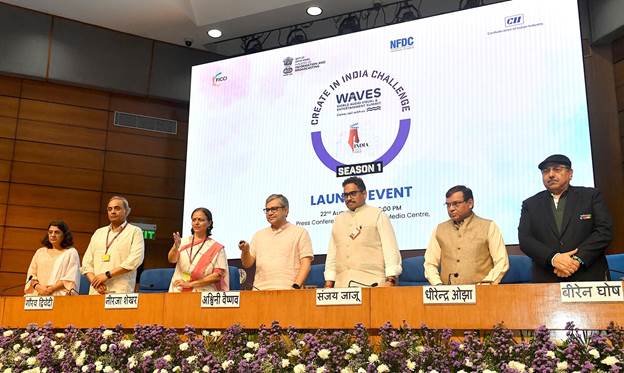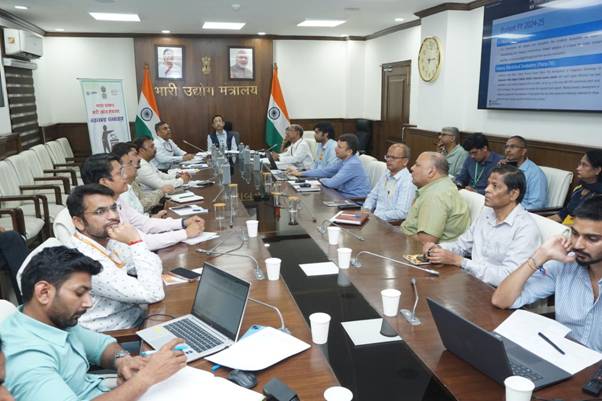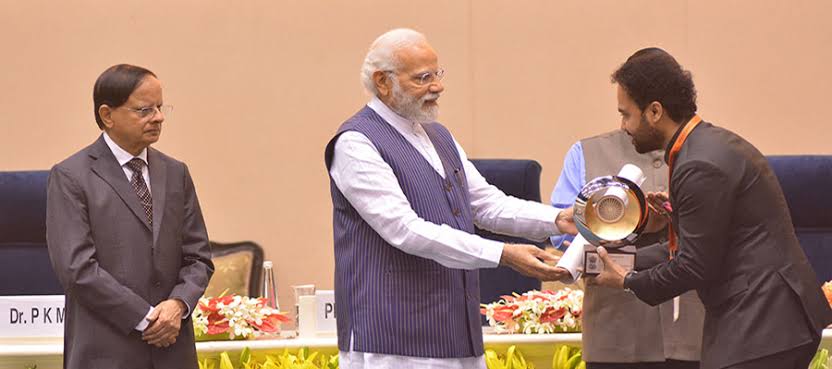The Ministry of Heavy Industries (MHI) held a Post-Budget Webinar on “E-Mobility, Capital Goods, and the Way Forward” at Udyog Bhawan, New Delhi. The event was led by Union Minister Shri H.D. Kumaraswamy, with the participation of Minister of State Shri Bhupathiraju Srinivasa Varma, senior officials, and industry leaders from the automotive sector.
 In his keynote address, Union Minister H.D. Kumaraswamy emphasized that the Ministry’s mission is aligned with Prime Minister Narendra Modi’s vision for “Viksit Bharat 2047” and achieving net-zero emissions by 2070. “MHI is committed to advancing India’s electric vehicle ecosystem, boosting local manufacturing, and promoting sustainable growth through initiatives like the PLI, FAME, EMPS, and advanced capital goods schemes. These efforts will drive India towards greater self-reliance and AatmaNirbharta,” he noted.
In his keynote address, Union Minister H.D. Kumaraswamy emphasized that the Ministry’s mission is aligned with Prime Minister Narendra Modi’s vision for “Viksit Bharat 2047” and achieving net-zero emissions by 2070. “MHI is committed to advancing India’s electric vehicle ecosystem, boosting local manufacturing, and promoting sustainable growth through initiatives like the PLI, FAME, EMPS, and advanced capital goods schemes. These efforts will drive India towards greater self-reliance and AatmaNirbharta,” he noted.
Minister of State Shri Bhupathiraju Srinivasa Varma highlighted that under Prime Minister Modi’s leadership, India is on the path to becoming a $5 trillion economy, with the automotive sector playing a crucial role. He added, “The Ministry of Heavy Industries is fostering innovation and self-reliance through the PLI Scheme for Automobiles and Auto Components, paving the way for a sustainable and prosperous future for India.”
The webinar featured detailed discussions on the Union Budget 2024-25, focusing on scaling up electric vehicle (EV) infrastructure, manufacturing, and the adoption of e-buses in public transport. The session underscored the importance of payment security mechanisms to encourage greater integration of e-buses.
A notable topic was the development of indigenous technology for Advanced Ultra Super Critical (AUSC) thermal power plants. A joint venture between NTPC and BHEL will soon establish an 800 MW commercial plant utilizing AUSC technology, with government financial backing.
Highlights of MHI’s Key Initiatives
- PLI AUTO Scheme: With an outlay of ₹25,938 crore, the scheme is designed to enhance domestic manufacturing and promote localization in the auto sector.
- PLI ACC Scheme: With an allocation of ₹18,100 crore for 50 GWh, this initiative aims to strengthen India’s ACC (Advanced Chemistry Cell) manufacturing capacity.
- EMPS Scheme: ₹778 crore is earmarked to support EV manufacturing, particularly for 2-wheelers and 3-wheelers.
- SMEC Initiative: This program seeks to attract global EV investments with a commitment of at least ₹4,150 crore.
- Capital Goods Scheme: A combined outlay of ₹2,203 crore across two phases focuses on driving investment, enhancing technological capabilities, and boosting domestic manufacturing.
The event saw participation from key stakeholders, including NITI Aayog Adviser Sudhendu J. Sinha, representatives from the Ministry of Housing and Urban Affairs, Ministry of New and Renewable Energy, SIAM President Vinod Aggarwal, ACMA, ICEMA, and leading companies such as Reliance Jio BP, Tata Power, Maruti, Mahindra, Volkswagen, Ather, Tata Motors, L&T, and more.




